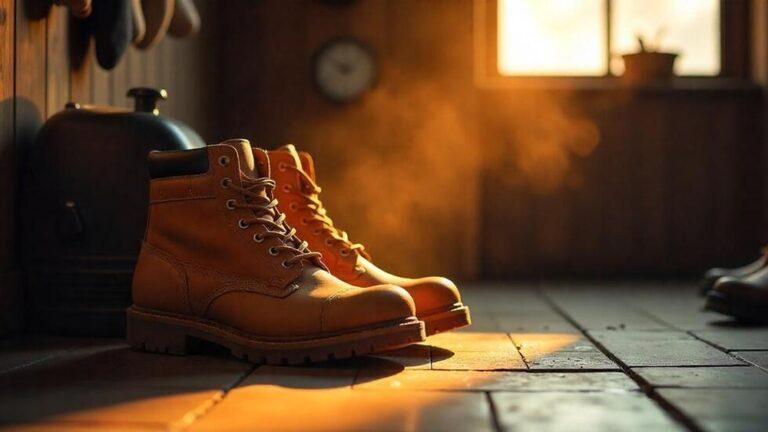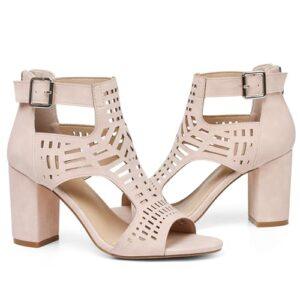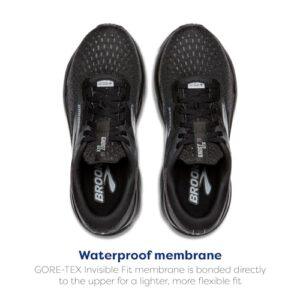Have you ever kicked off your work boots after a long day, only to be hit by a strong, unpleasant smell? If you’re wondering, “Why do my work boots smell so bad?”
You’re not alone. That stubborn odor isn’t just annoying—it can affect your comfort, confidence, and even your health. But don’t worry, understanding why your boots smell and how to fix it is easier than you think. Keep reading, and you’ll discover simple, effective ways to keep your boots fresh and odor-free every day.
Common Causes Of Boot Odor
Bad smells in work boots happen for a few common reasons. Knowing these causes helps to stop odor early. The build-up inside boots creates the perfect place for smells to grow. Understanding what makes boots smell bad can lead to better care. Here are the main reasons your boots might smell so bad.
Sweat And Moisture Build-up
Feet sweat a lot, especially during hard work. Sweat soaks into boots and stays inside. Moisture creates a damp space that smells bad fast. Wet boots do not dry quickly, causing more sweat to stay trapped. This wetness is the main cause of strong odors.
Bacteria And Fungi Growth
Bacteria and fungi love dark, wet places. Inside boots, they grow quickly on sweat and dead skin. These tiny creatures produce smelly gases as they live. The longer boots stay damp, the more bacteria and fungi grow. This growth causes strong, unpleasant smells.
Poor Ventilation
Boots without good air flow hold moisture inside. Lack of fresh air stops sweat from drying. Without ventilation, boots stay damp and warm. This warm, wet space helps bacteria and fungi grow faster. Boots with little air flow often smell much worse.
Material And Design Factors
Some boots use materials that trap moisture inside. Synthetic linings and thick soles can hold sweat. Designs with tight fit reduce air circulation. Boots made without breathable fabrics increase odor chances. Choosing the right material can reduce bad smells.

Credit: beta.joerundpiano.com
Daily Habits That Worsen Odor
Bad odor in work boots often comes from daily habits. These habits trap sweat and bacteria inside your boots. Over time, the smell grows stronger and harder to remove. Understanding these habits helps you keep your boots fresher for longer.
Wearing Boots Without Socks
Socks absorb sweat and stop it from soaking into boots. Without socks, sweat stays inside the boot material. This creates a perfect home for bacteria. Bacteria cause the bad smell that makes your boots stink.
Not Allowing Boots To Dry
Moisture stays inside boots after a long day. Wearing boots before they dry keeps them wet inside. Wet boots breed bacteria and fungi fast. This makes the smell worse and damages the boots.
Reusing The Same Pair Daily
Wearing the same boots every day stops them from drying fully. Boots need time to air out after use. Without rest, sweat and odor build up inside. Using different pairs helps keep each pair fresh.
Quick Fixes To Reduce Smell
Work boots can develop bad smells quickly. Sweat, dirt, and bacteria build up inside. These odors can make wearing your boots unpleasant. Quick fixes help reduce the smell fast. They keep your boots fresher between deep cleans. Try these easy methods to cut down bad odors.
Proper Drying Techniques
Wet boots trap moisture and cause bad smells. Dry your boots completely after use. Remove the insoles and let them air dry. Place boots in a warm, dry area. Avoid direct sunlight or heaters that may damage them. Stuff boots with newspaper to absorb moisture faster. Change the paper often until boots feel dry.
Using Odor-absorbing Insoles
Odor-absorbing insoles help reduce smells inside boots. They trap sweat and bacteria to keep boots fresh. Replace your old insoles with new odor-control ones. Look for insoles with activated charcoal or baking soda. Change insoles regularly to maintain freshness. This simple swap can make a big difference.
Applying Baking Soda Or Charcoal
Baking soda and charcoal are natural odor absorbers. Sprinkle baking soda inside your boots and leave overnight. Shake out the powder before wearing the boots again. Use charcoal bags or charcoal insoles to soak up smells. Both options help neutralize bad odors fast. Use these regularly for best results.
Long-term Solutions For Fresh Boots
Keeping work boots fresh takes effort and care over time. Smelly boots come from sweat and bacteria. Long-term solutions help stop the smell from coming back. Clean boots feel better and last longer. Here are some ways to keep your boots fresh every day.
Regular Cleaning And Maintenance
Clean your boots often to remove dirt and sweat. Use a soft brush or cloth to wipe the outside. Let boots dry completely after use. Avoid putting wet boots in closed places. Dirt and moisture cause bad smells and damage.
Choosing Breathable Socks
Wear socks made from cotton or wool. These materials let your feet breathe. They absorb sweat better than synthetic socks. Change socks daily to keep feet dry. Dry feet mean less smell in your boots.
Rotating Multiple Pairs
Use more than one pair of boots if possible. Let each pair dry out fully between uses. This stops moisture buildup and reduces odor. Rotating boots gives them time to air out. It keeps your feet and boots fresh.
Boot Care Products To Try
Use sprays or powders made for odor control. These products kill bacteria and absorb sweat. Sprinkle powder inside boots before wearing. Spray boots after use to keep them fresh. Choose products safe for your boot material.
When To Replace Your Boots
Knowing when to replace your work boots helps keep your feet healthy and comfortable. Boots wear down over time. The odor inside can sometimes signal it’s time for a new pair. Pay attention to how your boots look and feel. Some signs mean cleaning won’t fix the smell or damage.
Signs Of Irreversible Odor
Persistent bad smell that won’t go away is a clear sign. This odor often comes from bacteria deep inside the boot. If washing and airing out do not help, the odor is likely permanent. Strong, musty smells that return quickly after cleaning mean the boots are past their prime. Wearing boots with bad odor can cause foot problems.
Worn Out Materials
Check the inside lining and padding. When these materials break down, odor traps inside easily. Cracked soles, torn fabric, and crushed insoles reduce comfort and support. These worn parts let moisture stay inside, causing smell and damage. Boots that lose their shape or feel loose can no longer protect your feet properly. Replace boots showing these signs to avoid injury and discomfort.

Credit: www.youtube.com

Credit: www.nushoeinspectandcorrect.com
Frequently Asked Questions
Why Do Work Boots Develop A Bad Odor?
Work boots smell bad due to sweat, bacteria, and poor ventilation. Moisture inside boots creates an ideal environment for bacteria growth, causing unpleasant odors.
How Can I Prevent My Work Boots From Smelling?
To prevent odor, wear moisture-wicking socks and allow boots to dry completely. Use boot deodorizer sprays and alternate between pairs to reduce bacterial buildup.
Does Sweat Cause Work Boots To Smell?
Yes, sweat is a primary cause of boot odor. Sweat provides moisture that bacteria feed on, producing foul smells inside the boots.
Can Cleaning Remove Bad Smells From Work Boots?
Cleaning boots regularly removes dirt and bacteria. Use mild soap and water, then air dry. This reduces odor and keeps boots fresh.
Conclusion
Bad smells in work boots come from sweat and bacteria build-up. Wearing boots every day without drying them helps the smell grow. Taking care of boots by cleaning and airing them stops odors. Using socks made of breathable materials also helps keep feet dry.
Small habits make a big difference in boot freshness. Keep boots clean, dry, and give feet time to breathe. Smelly boots don’t have to be a problem anymore. Simple steps bring comfort back to your workday.

Madison Clark is a footwear expert and the voice behind MyStyleGrid.com. She specializes in honest shoe reviews, style tips, and practical guides to help readers find the perfect pair for any occasion. With years of experience in blogging and content creation, Madison makes footwear knowledge simple, stylish, and easy to follow.




